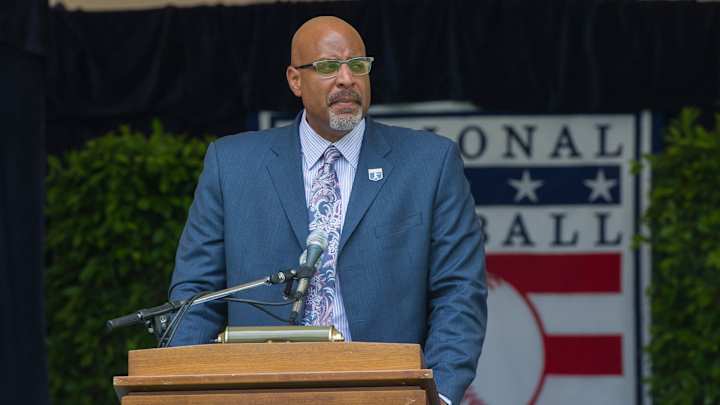MLBPA joins the American Federation of Labor and Congress of Industrial Organizations

The MLBPA sent shockwaves throughout professional baseball earlier this week when they revealed a bombshell that they were making an effort to unionize minor-league players. In just a few days, the majority of minor leaguers had already returned cards expressing their support, quickly strengthening the efforts position. The union was not done making sea-changing moves, though. The MLBPA announced that they have joined the American Federation of Labor and Congress of Industrial Organizations (AFL-CIO), continuing their recent work to build off the nationwide labor movement by joining a coalition that includes 58 other unions.
Former MLB first baseman and current MLBPA president Tony Clark spoke at a press conference alongside AFL-CIO president Liz Shuler on Wednesday, discussing the reasoning for the partnership and MLBPA's short and long-term goals with the group. The MLBPA will be joining a sports council within the AFL-CIO, which already includes the NFLPA, the National Women’s Soccer League Players Association, the United Soccer League Players Association, the U.S. Women’s National Team Players Association, and the newly organized United Football Players Association.

“The MLBPA and every single one of its 1,200 players have a home in our movement because this union understands and lives the meaning of the word solidarity by leveraging the power of sports and helping others,” Shuler said during her media availability. “Together, with our 12.5 million members, we will bring our strength to their fights, including working to organize 5,400 minor league players.”
The move will also bring the MLBPA closer to other unions involved in MLB games. The IATSE, for example, represents members that often work behind the camera in broadcasting and staging MLB games. This more direct partnership should give these less empowered workers an opportunity to form relationships with players and the MLBPA, which hopefully lead them to work in larger solidarity with other workers throughout the game.
Unions of professional athletes have often been criticized for their exclusivity, representing people with incomes that routinely reach seven figures. However, Clark has taken significant steps toward using the might of the MLBPA to work in solidarity with other unions. In the midst of a unionizing boom across the United States, there is no greater time to capitalize.
